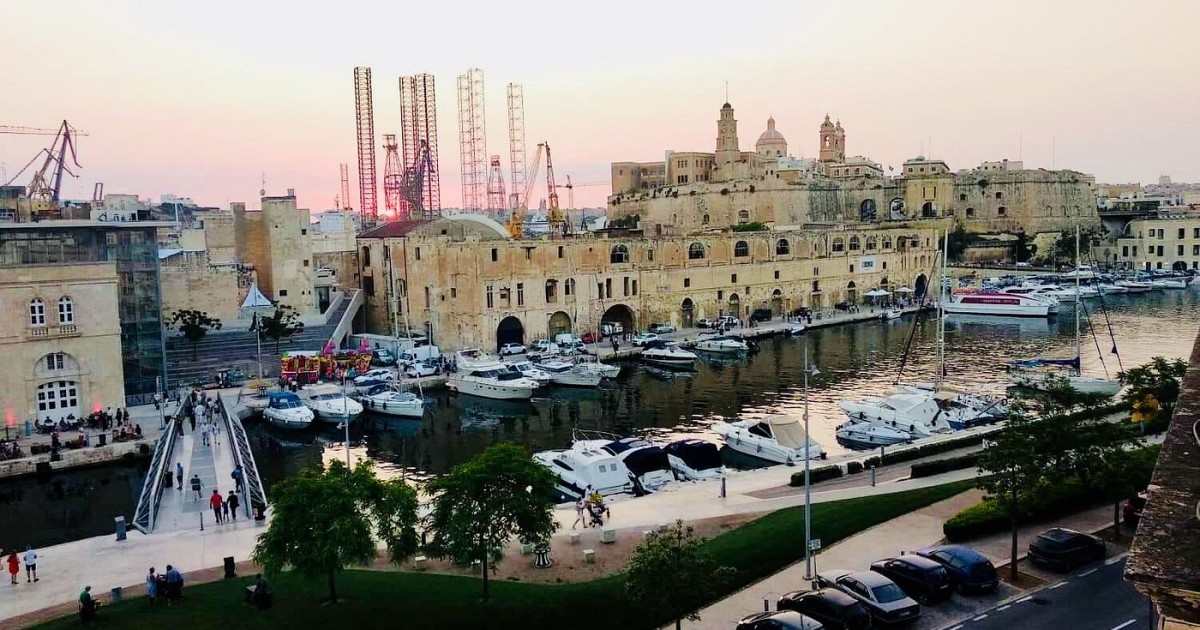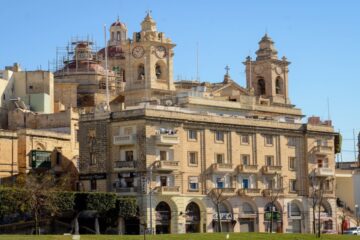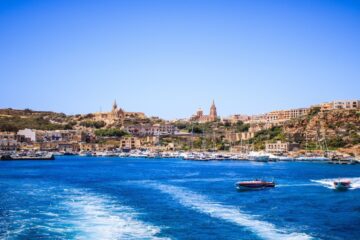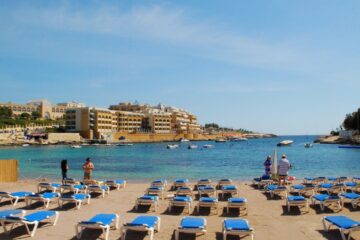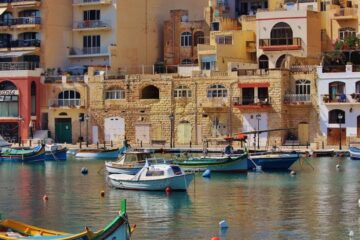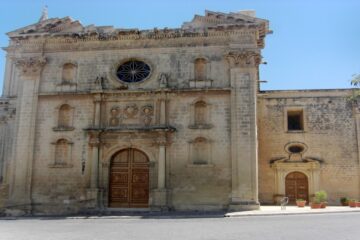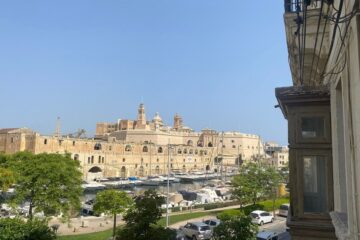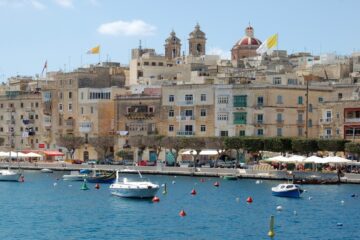Fgura is a town located in the south of Malta. It has a rich history and culture, which have been shaped by its many inhabitants over the years. From the earliest human remains on the Maltese Islands, to being one of the most heavily bombed towns during World War II, Fgura has seen it all. Today, this vibrant town is home to a range of businesses and shops as well as numerous traditional Maltese farmhouses. It is also home to some of Malta’s largest industrial parks and sports facilities such as the national football centre run by the Malta Football Association. With its diverse population, Fgura offers something for everyone – from families to small business owners alike. In this article, we will explore 10 facts about Fgura in Malta that everyone should know!
Fgura is home to the oldest known human remains on the Maltese Islands
Archaeological evidence suggests that Fgura is home to the earliest known human remains on the Maltese Islands, dating back to around 7,000 BC. This indicates that Fgura was one of the first places to be inhabited by humans on Malta. During this time period, Fgura would have been a popular hunting ground for the Knights of St John and other inhabitants of Malta. The area likely provided abundant sources of food and resources that could sustain large populations for considerable periods of time. As such, it is no surprise that Fgura has long been an important part of the Maltese landscape.
Fgura was a popular hunting ground for the Knights of St. John
The Knights of St. John were renowned for their love of hunting, making the area now known as Fgura a popular destination for them to pursue game. With its rolling hills and lush vegetation, Fgura provided an ideal environment for the knights’ pursuit of wild boar and other animals. The town was often filled with the sounds of hunting horns and hounds in search of game, making it one of the most sought-after locations in Malta during this era. This activity continued until 1798 when France annexed Malta from the order and brought an end to their rule. As a result, Fgura has remained a popular hunting ground ever since, offering some excellent opportunities for locals to experience a traditional form of Maltese sport. Transitioning into another topic, Fgura was one of the most heavily bombed towns in Malta during World War II due to its strategic location near Grand Harbour.
Read also: The Ultimate Malta Honeymoon Guide
Fgura was one of the most heavily bombed towns in Malta during World War II
During World War II, Fgura experienced relentless aerial bombardment as a result of its proximity to the Grand Harbour, leaving hundreds dead and many more injured. The town was bombarded over 100 times during the war in an effort to destroy its population and infrastructure. The consequences of this were devastating for the people who lived there:
- Loss of life: Hundreds of innocent civilians were killed in the bombings.
- Injury & Displacement: Many more suffered injuries and had to find refuge elsewhere.
- Structural Damage: Buildings were destroyed, leaving many homeless or without basic amenities.
The destruction wrought by these bombings left an indelible mark on the landscape and psyche of Fgura’s inhabitants, transforming it into one of the most heavily bombed towns in Malta during WWII. This tragic episode serves as a reminder of how freedom can never be taken for granted in times of conflict. Transitioning now to another aspect of Fgura – it is home to the largest industrial park in Malta.
Fgura is home to the largest industrial park in Malta
Situated on the outskirts of Malta’s capital city, Valletta is an expansive industrial park – the largest in the country. It is home to a wide variety of businesses, including manufacturing, logistics, and technology companies. Fgura Industrial Park has played a major role in promoting Fgura’s economic development over recent years. This has been further supported by its proximity to Malta International Airport and its access to the main road network. The park provides employment opportunities for local people, while also attracting foreign investment into Malta’s economy. With its strategic location and modern infrastructure, it has become increasingly attractive for international investments in various sectors and industries. In addition to this, Fgura Industrial Park also offers excellent facilities for conferences and events as well as recreational activity parks throughout the area that provide much-needed amenities to locals and visitors alike. Thus, it is clear that Fgura is not only home to one of Malta’s largest industrial parks; but it also provides ample opportunity for economic growth within the region.
Fgura is also home to the Malta Football Association’s National Football Centre
Located in Fgura, the Malta Football Association’s National Football Centre is a state-of-the-art facility offering comprehensive football training and development opportunities. The center offers:
- A professional-sized full grass pitch;
- A fully equipped gymnasium;
- An Olympic-sized swimming pool.
The center provides an ideal environment for players to hone their skills and prepare for competitive matches. It also serves as a platform for local clubs to host tournaments and events. Additionally, it supports the development of Maltese youth players through its advanced coaching programs available at the facility. With top-class facilities, the center is helping to raise the standards of football in Malta. Transitioning into another topic, Fgura is also home to the only karting track in Malta – providing an exciting opportunity for those looking to take part in motor racing events.
Fgura is home to the only karting track in Malta
Karting enthusiasts are offered an exciting opportunity to take part in motor racing events at the only track in Malta, located in Fgura. The track is designed by national and international champions so that it meets the highest standards of safety while providing adrenaline-pumping thrills and a unique experience. It is suitable for all types of karts, from beginners to experienced drivers. There are professional instructors on hand to help participants develop their skills and get the most out of their time on the track. Aside from its competitive nature, this activity offers a fun way to spend an afternoon with friends or family. Participants can also enjoy food and drinks at the various catering outlets around the area after they have finished their race. With its excellent facilities and great atmosphere, it’s no wonder why Fgura’s karting track attracts visitors from all over Malta and beyond.
Read also: Uncovering Facts About Cospicua (Bormla), Malta
Fgura is also home to the largest outdoor cinema in Malta
Fgura also hosts the largest outdoor cinema in Malta, providing moviegoers with a unique way to watch their favorite films. The cinema is located in the heart of Fgura and provides an ideal atmosphere for viewing films as it offers a great view of the surrounding countryside. The cinema shows a variety of films throughout the year, from classic favorites to modern blockbusters, giving movie lovers plenty of options for entertainment. In addition to its size and variety of offerings, this outdoor cinema also has state-of-the-art sound and projection equipment that ensures viewers can experience movies in all their glory. With its convenient location and quality offerings, this open-air movie theater is an excellent resource for film fans in Fgura.
The area around Fgura is also home to a number of prehistoric archaeological sites, including the Fgura Cart Ruts and the Fgura Megalithic Temples. These ancient sites offer visitors an interesting glimpse into Malta’s past while also providing evidence of human settlement on the island dating back thousands of years. The presence of these important historical sites makes Fgura an exciting destination for history buffs looking to explore Malta’s rich cultural heritage.
Fgura is home to a number of prehistoric archaeological sites, including the Fgura Cart Ruts and the Fgura Megalithic Temples
Situated near Fgura, the prehistoric archaeological sites of the Fgura Cart Ruts and the Fgura Megalithic Temples provide a fascinating insight into Malta’s past and evidence of early human settlement on the island. Dating back to before 5000 BC, the Cart Ruts are believed to have been created by carts used for transportation during this period. The Megalithic Temples were built by Maltese communities between 3600 2500 BC and are amongst some of Europe’s oldest structures. Both sites offer an incredible insight into Malta’s earliest inhabitants and provide an opportunity to learn more about their lives and culture. Today, both archaeological sites remain popular tourist attractions with visitors travelling from all around the world to experience them in person. With such a wealth of history, it is no wonder that these two ancient places continue to capture people’s imaginations. Moving forward, these important archaeological sites will surely remain integral pieces of Malta’s heritage for generations to come.
Fgura is also home to a number of historical churches and chapels, including the Church of St. Elias and the Chapel of Our Lady of Lourdes
Located near Fgura, the Church of St. Elias and the Chapel of Our Lady of Lourdes provide a glimpse into Maltese history, having been built in the 17th and 19th centuries respectively. The Church of St. Elias is a Baroque building that was constructed in 1690, while the Chapel of Our Lady of Lourdes was built much later in 1886. These two structures are examples of Malta’s rich religious heritage, as well as its architectural diversity. They also serve to remind visitors about the importance that religion has had on this small Mediterranean nation throughout its history. The churches and chapels still stand today, providing travelers with an opportunity to view both older and newer styles that have been used to construct them over time. This makes Fgura an ideal destination for those looking to explore Malta’s past through its historical architecture.
Read also: Dingli (Malta) Facts: Uncovering Secrets You Should Know
Fgura is a popular destination for birdwatchers
Due to its variety of bird species, Fgura is a destination of choice for birdwatchers wishing to observe the diverse avian life in Malta. The town houses many different species including the blue rock thrush, the common kestrel, and the Maltese falcon. Birdwatchers can explore:
- A range of habitats- from wetlands to open fields and woodlands – ensure they never miss a sight or sound.
- They may spot birds such as goldfinches, hoopoes, and woodchat shrikes amongst other rarer birds.
- In springtime, migrating birds visit Fgura giving an opportunity to see a wide variety of birds at once.
- An abundance of nesting sites in trees and reeds provide excellent opportunities for viewing nests up close without disturbing them.
- Birders may also witness courtship displays or catch glimpses of fledglings as they learn to fly!
- With careful observation, one can discover small details that will bring delight even to experienced birders.
Fgura’s scenic beauty combined with its rich biodiversity makes it an ideal place for wildlife enthusiasts seeking enriching experiences in nature. Its picturesque landscape offers unparalleled views that captivate both locals and tourists alike. Furthermore, its well-maintained trails make it easy for visitors to explore this beautiful area while still following safety guidelines set by local authorities. With this in mind, it is no wonder that Fgura has become a popular destination for those looking to experience Malta’s natural wonders up close and personal! As we move on from this topic into our next section about ”Fgura is home to a number of traditional Maltese houses, known as ‘farmhouses”, we can appreciate how Fgura provides something special for everyone who visits it – be they birdwatcher or not!
Fgura is home to a number of traditional Maltese houses, known as “farmhouses”
Fgura is home to many traditional Maltese farmhouses, offering visitors a glimpse into the region’s unique architectural heritage. Constructed from limestone, these houses are typically two stories high and have a distinctive Maltese style with exposed stone walls and intricate wooden balconies. These homes are steeped in history, having been built during the 16th century when Fgura was first settled by farmers. It is believed that some of these farmhouses still retain their original designs which date back hundreds of years. Today, these homes offer an insight into the past while also providing visitors with an interesting look at Malta’s long-standing architectural traditions. As such, they serve as an important reminder of the country’s rich cultural heritage and continue to draw tourists from all over the world who appreciate their beauty and charm.
Fgura is also home to a number of small businesses and shops
Nestled amongst its traditional farmhouses, Fgura is also home to a variety of small businesses and shops, offering visitors a chance to explore the local culture and pick up souvenirs. From traditional Maltese restaurants and bars to clothing stores, jewelers, and gift shops, Fgura has something for everyone:
- Traditional Maltese restaurants serve up delicious dishes like rabbit stew.
- Clothing stores stocking designer brands from around the world.
- Jewelers showcasing handcrafted pieces in silver and gold.
- Gift shops with unique souvenirs that will remind you of your time in Malta.
The plethora of small businesses in Fgura offers a truly unique shopping experience that can’t be found anywhere else. With such a wide range of products available, it’s easy to find something special for yourself or a loved one while exploring this wonderful town. As an added bonus, most establishments offer great prices on their goods – perfect for those looking to save money on their holiday purchases! Family-friendly activities are abundant here as well; making Fgura the perfect place for families seeking quality time together while exploring an authentic Maltese town.
Read also: Uncovering Facts About Birżebbuġa, Malta
Fgura is a very family-friendly town
With its abundance of parks, playgrounds, schools, and childcare facilities, Fgura is the ideal destination for families seeking a safe and welcoming environment to explore together. This family-friendly atmosphere is further enhanced by the diverse range of small businesses that can be found in the area. From independent restaurants and retail outlets to traditional services like hairdressers and barbershops, there’s something for everyone in Fgura. The town also has an active community center with regular events throughout the year that bring people together from all walks of life to share experiences and form lasting relationships. Moreover, Fgura offers plenty of opportunities for outdoor activities such as fishing, cycling, jogging or simply relaxing at one of the many beaches along its beautiful coastline. Families can enjoy a truly unique experience here without ever having to leave their own backyard. In short, Fgura is definitely a great place for families looking for a home away from home.
Fgura is a very diverse town
Continuing on from Fgura being a very family-friendly town, it is also a very diverse one. With people from all over the world living in this small Maltese town, Fgura has become a melting pot of different cultures and nationalities. Here are some facts about Fgura’s diversity:
- Over 70 different nationalities live in Fgura.
- There are around 30 different languages spoken in the town.
- The population of the town is made up of approximately 10% foreigners, making it one of the most culturally diverse towns in Malta.
Despite its size, Fgura offers an impressive array of cultural activities that cater to its diverse population and makes it a great place to visit for anyone interested in learning about other cultures or experiencing them firsthand. The local festivals and events reflect the various backgrounds that make up this vibrant community, allowing locals and visitors alike to explore new customs and traditions without having to leave home!
Frequently Asked Questions
The oldest known human remains in Fgura date back to the Neolithic period, approximately 7,000 years ago. Remains of pottery and other artifacts have been uncovered that suggest a long history of human occupation in this area. Excavations have revealed evidence of early life and activities during that era.
The Knights of St. John have been a prominent presence in Fgura since the 16th century. They brought with them culture, trade, and religion that significantly impacted the town’s development and prosperity. Their influence shaped many aspects of life in Fgura until their departure in 1798.
World War II had a significant impact on Fgura, with the town being heavily bombed during the Siege of Malta. This resulted in damage to buildings and infrastructure as well as significant casualties among the civilian population. The bombing also caused the displacement of many families from their homes.
The Malta Football Association’s National Football Centre offers a range of activities, including training sessions, tournaments, and youth leagues. It also provides facilities for coaches to develop their skills and access to international competitions. The Centre is a hub for football in Malta and provides a platform for players to reach their full potential.
Fgura is a town in Malta that contains several archaeological sites, including the ruins of an ancient temple. Other sites include the remains of a Roman villa and an early Christian catacomb. Archaeologists have also found evidence of human activity from the Neolithic period in Fgura.
Conclusion
Fgura has a long history and is home to many interesting facts. It boasts the oldest known human remains on the islands, was a popular hunting ground for the Knights of St John, and was one of the most heavily bombed towns in Malta during World War II. Additionally, Fgura is home to the largest industrial park in Malta and the Malta Football Association’s National Football Centre. Numerous traditional Maltese houses can be found here, as well as small businesses and shops. Fgura offers its citizens a family-friendly environment with plenty of cultural diversity. All this makes Fgura an interesting place to visit or live in, offering much more than just historical attractions.

